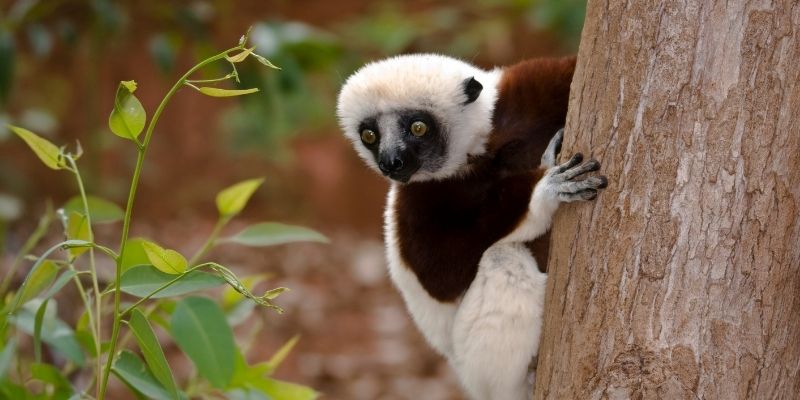What Have We Learnt from The Study of Primates?.
There are many fascinating reasons people study primates. Besides the fact these are a group of adorable, amusing and majestic creatures, they are also closely linked to humans. Through the study of nonhuman primates, we can find out more about their importance to the world, as well as more about ourselves.
Both humans and monkeys are primates, though contrary to popular belief, we aren’t descended from any that are in existence today. Many people think we evolved from monkeys, but the common ape ancestor we share with chimpanzees lived over 6 million years ago.
After this point, humans and chimpanzees evolved very differently. However, the study of primates today can still shed a lot of light on our similarities, differences and the reason for the change in evolutionary direction for us. Find out more about some of the important things we have learnt from the study of primates so far.
We Know More About Humans
If you’re wondering ‘why do we study primates in anthropology?’, the reason is simply to learn more about the origins of humans. By examining their makeup and their behaviours, we can see the similarities and differences between us, which helps us figure out why we turned out the way we have.
Physical Similarities and Differences
For many people, it can be hard to comprehend that we are another species of primates with African origins, but we are really not that different in our physical makeup. Internally, we have basically the same arrangement of organs and bones as African apes, we get a number of the same diseases and many of our blood type systems are the same.
Externally, the similarities are evident too. We both don’t have tails and our hands have thumbs separate enough from our fingers, so they are opposable to help us grip.
Humans, like all the great apes, are also sexually dimorphic, meaning males are generally larger and have more muscular development in their upper bodies. Another similarity humans have with bonobos and chimpanzees is that we are omnivores.
In contrast, the study of primates has highlighted a number of anatomical differences which can help us see where and why our evolutionary path began to change. For the most part, the changes began when human evolution saw our ancestors use their legs primarily for movement. Now, our arms are shorter and weaker in contrast to our legs, whereas apes use both equally to move around.

Where we have used our legs to walk and run, our feet have adapted to be better body supports. Our feet have lengthened and created an arch, and our toes have become shorter. Our big toe is now also in line with the rest, reducing our ability to grip and manipulate things with our feet.
To help us stand more upright our pelvis and spinal column also changed with time, as has the development of long legs and stronger leg muscles. These changes have been thought to help us run more effectively, as long legs minimise the energy required to move quickly. So, as much as humans are not the fastest on the planet, our endurance abilities enable us to outrun most animals over long distances.
Further to this, being mostly hairless in comparison to other primates has also been a great benefit to us over the years. This and our many sweat glands help us keep cool, which would have been a great benefit when competing with other predators for food in warmer climates.
Another evolutionary development that has seen humans so easily become the dominant species, is the difference in our genome. Studies of humans and chimpanzees have shown that 96% of DNA base pair sequences are the same. The 4% difference relates to genes that control certain elements like speech and hearing, which has ultimately led to us having a much larger brain than other primates.
Behavioural Similarities and Differences
While humans are at the top of the leader board in brain capacity, primates, in general, are more intelligent than other animals. Through the study of primates, we have been able to find out why that is, but also how nonhuman primate species present all aspects of human intelligence in rudimentary form at least.
Primate behavioural studies are incredibly important as, by understanding the evolution of their intelligence and behavioural development, we can see how our ancestors may have behaved.
To this date, primate studies have shown how primates are quite adaptable in how they deal with the world around them. This is because they have complicated physical and social worlds, which is further adding to their cognitive abilities.
Physical World Cognition
- Cognitive mapping – The ability to understand and remember the features of their living environment, so they can avoid threats, remember landmarks, navigate bad weather, and find the best food sources
- Memory and forward planning – The ability to use numerals for simple arithmetic, replicate actions demonstrated to them previously, recall locations and images, as well as keep tools to hand that will serve a purpose at a later date
- Using tools and causal understanding – The ability to make tools out of certain materials to complete specific tasks
Social World Cognition
- Cooperation – The ability to cooperate on tasks like hunting in groups, defending their territory, and rank acquisition through alliances
- Social intelligence – The ability to manipulate the behaviour of others for their own advantage and to outsmart rivals
- Social learning – The ability to learn from each other and transfer information between groups
Primates are Important for the Environment
Sadly, over half of modern-day primates are considered to be endangered. This is because many primates need thriving forests to exist, and with these habitats being harvested for resources and land, primates are struggling to survive.
Nonhuman primates have a very important role in their ecosystem, as they have a direct impact on the regeneration of these forests, which helps keep other life in the ecosystem alive. This is because they disperse seeds that other creatures can’t spread, which are a key source of food for many wildlife species. They also act as predator, prey and mutualist species in food networks that would fail to function or be as resilient without them.
This sheds even more light on the importance of studying non-human primates, as without them, a lot of the life we see on the planet would struggle to exist.

How You Can Study Primates
Whether you are fascinated by primate species and want to indulge your interests, or you feel the study of primates will lead you to a rewarding career, an online course in primate studies is a great place to start.
The Primate Studies Level 3 Award (RQF) is a nationally recognised qualification that demonstrates a certain level of understanding when it comes to primates. It focuses on the biology, ecology, behaviour, management and conservation of different types of primates. All of these elements put you in a great position to pursue a job that helps care for, study and preserve them in some way.
You could take this knowledge into a role in a zoo caring for apes and other primate species, or study further courses at the university level to become a primatologist. A role in which you will study primates in their natural habitats and other environments to further understand their makeup, intelligence and behaviour.
Get Started Today
If you’re ready to take the next step to learn more about these amazing creatures, Stonebridge Associated Colleges can help you take your knowledge further.
Our online Primate Studies Level 3 Award (RQF) can be studied when and where it suits you. So, no matter if you’re learning for pleasure or to switch careers, you can do so around your other commitments.
Find out more by calling our Course Executives today. They can answer all the questions you have about the course, the related careers you can work your way towards and how you can get enrolled today!
Call them on 0121 392 8288 or contact them online now.




